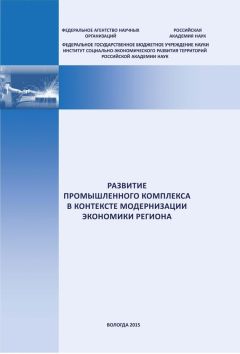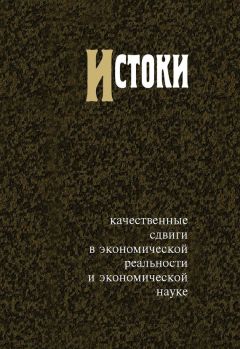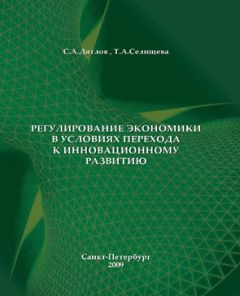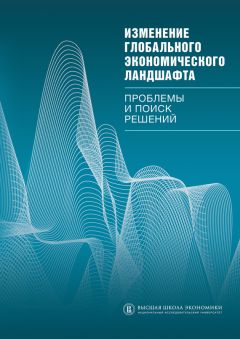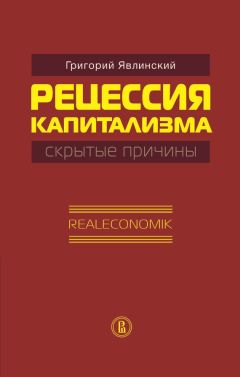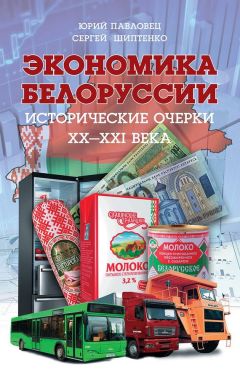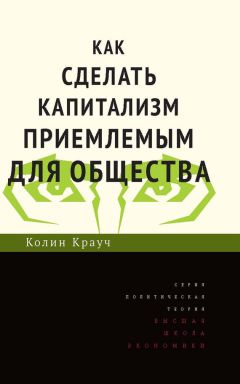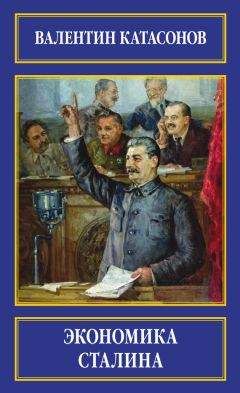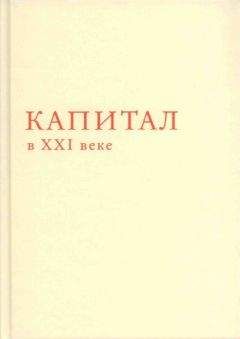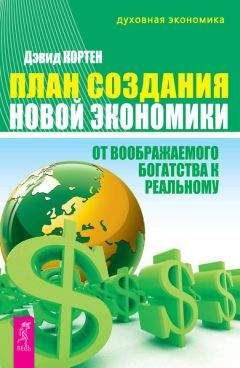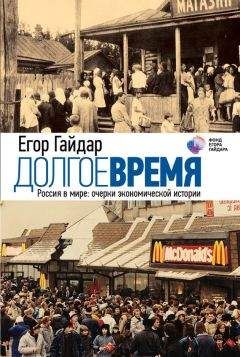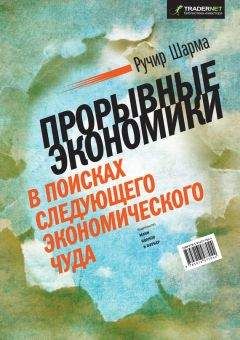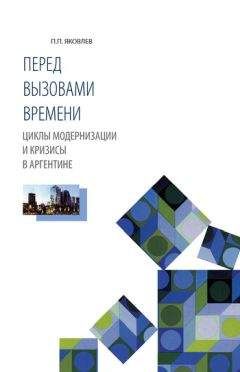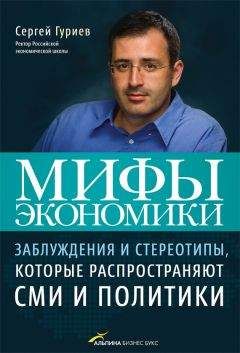Франк Трентманн - Эволюция потребления. Как спрос формирует предложение с XV века до наших дней

Все авторские права соблюдены. Напишите нам, если Вы не согласны.
Описание книги "Эволюция потребления. Как спрос формирует предложение с XV века до наших дней"
Описание и краткое содержание "Эволюция потребления. Как спрос формирует предложение с XV века до наших дней" читать бесплатно онлайн.
186
Jacob Spon, De l’usage, du caphé, du thé, et du chocolate (Lyon, 1671); я цитирую современный английский перевод: John Chamberlayne, The Manner of Making Coffee, Tea and Chocolate (London, 1685), переизданный в: Ellis, ed., Eighteenth-century Coffee-house Culture, Vol. IV, 105—11.
187
Цитата из: John Chamberlayne, The Natural History of Coffee, Tea, Chocolate, Tobacco (London, 1682), 4–5.
188
Chamberlayne, The Manner of Making Coffee. For Red Sea piracy, see K. N. Chaudhuri, The Trading World of Asia and the English East India Company, 1660–1760 (Cambridge, 1978), 361.
189
James Howell, 1650s, цитируется в: The Vertues of Coffee. Pepys’s diary, 24 April 1661.
190
James Howell, 1650s, цитируется в: The Vertues of Coffee.
191
Habermas, Transformation; Brian Cowan, The Social Life of Coffee: The Emergence of the British Coffeehouse (New Haven, 2005); Hochmuth, Globale Güter; James Livesey, Civil Society and Empire (New Haven, CT, 2009); Jean-Claude Bologne, Histoire des cafés et des cafetiers (Paris, 1993).
192
P. «Considerazioni sul Lusso», из: Il Caffè (Milan, 1764), 110, мой перевод.
193
Amanda Vickery, The Gentleman’s Daughter: Women’s Lives in Georgian England (New Haven, CT, 1998), 206—8.
194
Michael North, Genuß und Glück des Lebens: Kulturkonsum im Zeitalter der Aufklärung (Cologne, 2003), 209.
195
Jean de La Roque, An Historical Treatise Concerning the Original [sic] and Progress of Coffee, as well as in Asia as Europe (1715; London edition, 1732), repr. из: Ellis, ed., Eighteenth-century Coffee-house Culture, Vol. IV, 277–312. О Де Ла Роке см.: Ina Baghdiantz McCabe, Orientalism in Early Modern France: Eurasian Trade, Exoticism and the Ancien Regime (Oxford, 2008), 172f.
196
Anne McCants, «Poor Consumers as Global Consumers: The Diffusion of Tea and Coffee Drinking in the Eighteenth Century», Economic History Review 61, 2008: 172–200; Wouter Ryckbosch, «A Consumer Revolution under Strain: Consumption, Wealth and Status in Eighteenth-century Aalst», PhD thesis, Antwerp (2012); John Styles, «Lodging at the Old Bailey: Lodgings and Their Furnishing in Eighteenthcentury London», из: Gender, Taste and Material Culture in Britain and North America, 1700–1830, eds. John Styles & Amanda Vickery (New Haven, CT, 2006); а также Lorna Weatherill, Consumer Behaviour and Material Culture in Britain, 1660–1760 (London, 1996, 2nd edn).
197
Edward Eagleton, 1785, цитата из: Hohcheung Mui & Lorni Mui, Shops and Shopkeeping in Eighteenth-сentury England (London, 1987), 257. Для разнообразия см.: Jon Stobart, Sugar and Spice: Grocers and Groceries in Provincial England, 1650–1830 (Oxford, 2013), 50—6.
198
Hochmuth, Globale Güter, 134, 142.
199
Robert Batchelor, «On the Movement of Porcelains: Rethinking the Birth of the Consumer Society as Interactions of Exchange Networks, China and Britain, 1600–1750», из: Consuming Cultures, Global Perspectives, 95—122.
200
Вывод сделан на основе: Maxine Berg, Luxury and Pleasure in Eighteenth-сentury Britain (Oxford, 2005), 52–75, 128—49; Chaudhuri, Trading World of Asia; Chuimei Ho, «The Ceramics Trade in Asia, 1602—82», из: Japanese Industrialization and the Asian Economy, ed. A. J. H. Latham & Heita Kawakatsu (London, 1994), 35–70; Fang Lili, Chinese Ceramics (Beijing, 2005).
201
Jonas Hanway, Letters on the Importance of the Rising Generation of the Labouring Part of Our Fellow-subjects (London, 1757), II, letter XXX, 174—85.
202
Legrand d’Aussy, Histoire de la vie privée des François (Paris, 1815; 1st edn 1783), 145, перевод мой.
203
La Roque, Progress of Coffee, 366.
204
Dr Fothergill в обращении к J. Ellis, 2 September 1773, из: John Ellis, An Historical Account of Coffee (London, 1774), 38, repr. in Ellis, ed., Eighteenth-century Coffee-house Culture, Vol. IV.
205
Postleth-wayt, The African Trade (1745), цитата из: Eric Williams, Capitalism and Slavery (Chapel Hill, NC, 1944/1994), 52.
206
Joseph E. Inikori, Africans and the Industrial Revolution in England (Cambridge, 2002); «Roundtable, Reviews of Joseph Inikori, Africans and the Industrial Revolution in England», International Journal of Maritime History XV, no. 2, Dec. 2003: 279–361. Patrick O’Brien, «Fiscal and Financial Preconditions for the Rise of British Naval Hegemony 1485–1815», working paper 91 (2005), http://www.lse.ac.uk/collec-tions/economicHistory/pdf/WP9105.pdf.
207
S. D. Smith, «Accounting for Taste: British Coffee Consumption in Historical Perspective», Journal of Interdisciplinary History 27, 1996: 183–214.
208
La Roque, Progress of Coffee; Zedler’s Universal-lexikon, цитата из: Annerose Menninger, Genuß im kulturellen Wandel: Tabak, Kaffee, Tee und Schokolade in Europa (16. —19. Jahrhundert) (Stuttgart, 2004), 317.
209
Fothergill to Ellis, 2 September 1773, in Ellis, An Historical Account of Coffee (London, 1774), 30.
210
Edward Gibbon Wakefield, England and America (New York, 1834), 84.
211
Как и в случае с производством шерсти в Йоркшире.
212
Berg, «Pursuit of Luxury». Я написал «способствовало», так как потребительский спрос сам по себе не мог быть причиной для Промышленной революции. В то же время многочисленные связи между зарубежными и отечественными явлениями не дают провести четкое разграничение между внешними и внутренними факторами. О европейском прогрессе в науке и технологиях см. Joel Mokyr, The Gifts of Athena: Historical Origins of the Knowledge Economy (Princeton, NJ, 2002).
213
Jan De Vries, European Urbanization, 1500–1800 (Cambridge, MA, 1984); Paul Bairoch, De Jéricho à Mexico: Villes et économie dans l’histoire (Paris, 1985); Peter Clark, ed., The Oxford Handbook of Cities in World History (Oxford, 2013). Ли Бочжун в своем недавнем исследовании приходит к выводу, что не менее 20 % населения в регионе Цзяннань жили в городах в эпоху Цин. Меня в данной ситуации больше волнуют степени, а не абсолютные величины. Не стоит говорить, что в Китае не было городов; они были, просто в меньшем количестве.
214
Weatherill, Consumer Behaviour and Material Culture in Britain, 1660–1760, таблица 4.2. Как она отмечает, исключения составляли менее бросающиеся в глаза предметы, такие как книги.
215
Andrew Hann & Jon Stobart, «Sites of Consumption: The Display of Goods in Provincial Shops in Eighteenth-entury England», Cultural and Social History 2, 2005: 165—87, особенно 177.
216
Bernard Mandeville, The Fable of the Bees (1714; London, 1989), Remark (M), 152. Это распространенное наблюдение, например, у Джона Рэя: «В городе Молли Сигрим восхищались бы как самой утонченной леди, но в деревне ей доставались только насмешки»: Statement of Some New Principles on the Subject of Political Economy (Boston, 1834), 280.
217
Stephen D. Greenblatt, Renaissance Self-fashioning (Chicago, IL, 1960); см. также P. D. Glennie & N. J. Thrift, «Modernity, Urbanism and Modern Consumption», Environment and Planning D: Society and Space 10, 1992: 423—43.
218
По мнению Wim van Binsbergen, из: Wim M. J. van Binsbergen & Peter L. Geschiere, eds., Commodification: Things, Agency and Identities (The Social Life of Things Revisited) (Münster, 2005) цитата со с. 33. См. также: Igor Kopytoff, «The Cultural Biography of Things», in Appadurai, ed., Social Life of Things, особенно 84. Является ли такая трактовка Декарта или Канта убедительной, это уже другой вопрос. То, что картезианское эго было больше, чем просто разум, доказывается в работе: Karen Detlefsen, ed., Descartes’ Meditations: A Critical Guide (Cambridge, 2013).
219
Bruno Latour, «From Realpolitik to Dingpolitik», из: Making Things Public: Atmospheres of Democracy, ed. Bruno Latour & Peter Weibel (Cambridge, MA, 2005); Bruno Latour, We Have Never Been Modern (Cambridge, MA, 1993); см. далее: Frank Trentmann, «Materiality in the Future of History: Things, Practices and Politics», Journal of British Studies 48, no. 2, 2009: 283–307.
220
Harold J. Cook, Matters of Exchange: Commerce, Medicine and Science in the Dutch Golden Age (New Haven, CT, 2007).
221
Brook, Vermeer’s Hat, цитата на с. 82. См. также: Schama, The Embarrassment of Riches.
222
Thomas Mun, England’s Treasure by Forraign Trade (London, 1664), 108.
223
Some Considerations Touching the Usefulness of Experimental Natural Philosophy (Oxford, 1663) из: Works of the Honorable Robert Boyle (1744), 56.
224
Bishop of Rochester, Thomas Sprat, The History of the Royal Society of London (London, 1667), 381, 384.
225
Nicholas Barbon, A Discourse of Trade (London, 1690), 14–15.
226
Bernard Mandeville, The Fable of the Bees (1714; London, 1989), 68, 69. 58. As does Clunas, Superfluous Things, 146.
227
Daniel Defoe, A Plan of the English Commerce (Oxford, 1728/1927), 77, 144—6. John Cary, An Essay on the State of England (Bristol, 1695), в особенности 147. См. также: Richard C. Wiles, «The Theory of Wages in Later English Mercantilism», Economic History Review, new series, XXI/1 (April 1968), 113—26; Paul Slack, «The Politics of Consumption and England’s Happiness in the Later Seventeenth Century», English Historical Review CXXII, 2007: 609—31; Cosimo Perrotta, Consumption as an Investment I: The Fear of Goods from Hesiod to Adam Smith (London and New York, 2004).
228
Berry, The Idea of Luxury; Perrotta, Consumption as Investment; Maxine Berg and Elizabeth Eger, eds., Luxury in the Eighteenth Century: Debates, Desires and Delectable Goods (Basingstoke, 2003).
229
Michael Kwass, «Consumption and the World of Ideas: Consumer Revolution and the Moral Economy of the Marquis de Mirabeau», Eighteenth-century Studies 37, no. 2, 2004: 187–213. См. также: James Livesey, «Agrarian Ideology and Commercial Republicanism in the French Revolution», Past and Present, no. 157, 1997: 94—121.
230
Montesquieu, L’Esprit des lois (1748), bk VII.
231
David Hume, «Of Refinement in the Arts» (1741), repr. из: Political Essays (Cambridge, 1994), 108, 112. См. также: «Of Commerce», 93—104.
232
Hume, «Of Refinement in the Arts», 107.
233
David Hume, A Treatise of Human Nature (1739), 116. О сторонниках Спинозы см.: Jonathan Israel, Radical Enlightenment (Oxford, 2001). См. также: Annette C. Baier, «David Hume, Spinozist», Hume Studies XIX/2 (Nov. 1993), 237—52.
234
«Novelty, and the Unexpected Appearance of Objects», Henry Home/Lord Kames, Elements of Criticism (London, 1762/1805, I, 211—21, цитата со с. 221. Сравните эссе Аддисона об удовольствиях воображения в Spectator, no. 412.
Подписывайтесь на наши страницы в социальных сетях.
Будьте в курсе последних книжных новинок, комментируйте, обсуждайте. Мы ждём Вас!
Похожие книги на "Эволюция потребления. Как спрос формирует предложение с XV века до наших дней"
Книги похожие на "Эволюция потребления. Как спрос формирует предложение с XV века до наших дней" читать онлайн или скачать бесплатно полные версии.
Мы рекомендуем Вам зарегистрироваться либо войти на сайт под своим именем.
Отзывы о "Франк Трентманн - Эволюция потребления. Как спрос формирует предложение с XV века до наших дней"
Отзывы читателей о книге "Эволюция потребления. Как спрос формирует предложение с XV века до наших дней", комментарии и мнения людей о произведении.








